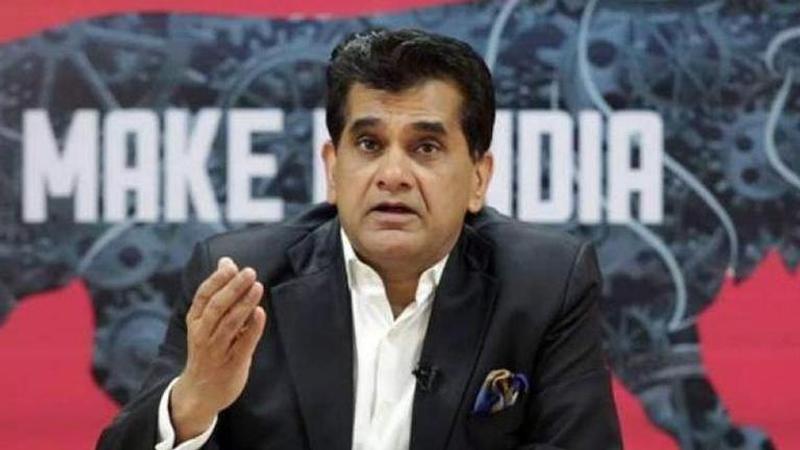Published 13:37 IST, June 30th 2020
Clean Energy can Support India's Economic Recovery post-COVID-19
A new report by NITI Aayog and Rocky Mountain Institute (RMI) identifies how COVID-19 is beginning to influence the clean energy transition in India, specifically for the transport and power sectors. The report recommends principles and strategic opportunities for the country's leaders to drive economic recovery and maintain momentum towards a clean energy economy.

A new report by NITI Aayog and Rocky Mountain Institute (RMI) identifies how COVID-19 is beginning to influence the clean energy transition in India, specifically for the transport and power sectors. The report recommends principles and strategic opportunities for the country's leaders to drive economic recovery and maintain momentum towards a clean energy economy.
COVID-19 has presented significant demand- and supply-side challenges for India's transport and power sectors, from liquidity constraints and supply shortages to shifts in consumer demand and preferences. The new report, titled Towards a Clean Energy Economy: Post-COVID-19 Opportunities for India's Energy and Mobility Sectors, advocates for stimulus and recovery efforts that work towards building a clean, resilient, and least-cost energy future for India. These efforts include electric vehicle, energy storage, and renewable energy programs.
Rajiv Kumar, Vice Chairman, NITI Aayog said that he is confident that India's economy will recover following the containment of the COVID-19 pandemic. "India's strong democratic institutions promote policy stability. Ongoing economic reforms, if executed well, should keep the country's growth rate ahead of peers," he said.
"Clean energy will be a major driver of India's economic recovery and international competitiveness," added Amitabh Kant, CEO, NITI Aayog. "We must look at how to leverage our domestic innovation ecosystem to bring value to the country and industry in this new normal. We have recommended specific actions by which India can revive two of our economic powerhouses-the transport and power sectors-and emerge stronger." The report lays out four principles as a framework for policymakers and other key decision-makers considering programs to support India's clean energy future: 1) invest in least-cost-energy solutions, 2) support resilient and secure energy systems, 3) prioritize efficiency and competitiveness, and 4) promote social and environmental equity.
"India needs to identify strategic opportunities for economic recovery in the short, medium, and long terms that can translate challenges posed by the pandemic into clean energy transition opportunities," said Anil Srivastava, Principal Consultant and Mission Director, NITI Aayog.
Opportunities in the transport sector include making public transport safe, enhancing and expanding non-motorized transport infrastructure, reducing vehicle kilometres travelled through work-from-home where possible, supporting national strategies to adopt electric vehicles in the freight and passenger segments, and making India an automotive export hub.
In the power sector, opportunities include improving the electricity distribution business and its operations, enabling renewables and distributed energy resources, and promoting energy resilience and local manufacturing of renewable energy and energy storage technologies.
"The principles and opportunities in the report can provide guidance to India's public and private sector leaders on how to evaluate and prioritize stimulus and recovery options that continue to invest in a long-term clean energy future for India," said Akshima Ghate, Director, RMI India.
"COVID-19 has disrupted the world and affected everyone's lives," said Clay Stranger, senior director, Rocky Mountain Institute. "As India looks to recovery efforts, clean energy and mobility systems can make a more resilient India by bolstering manufacturing, enhancing the reliability of electricity, avoiding costly oil imports, and cleaning the air." The report states that India's transport sector can save 1.7 gigatonnes of cumulative carbon dioxide emissions and avoid about 600 million tonnes of oil equivalent in fuel demand by 2030 through shared, electric, and connected passenger mobility and cost-effective, clean, and optimized freight transport. Significant savings are also achievable in the power sector through the adoption of renewable energy, energy storage, efficiency, and flexible generation and demand.
The report can be accessed on the following links: Rocky Mountain Institute: https://rmi.org/insight/india-stimulus-strategy-recommendations-towards-a-clean-energy-economy/ RMI India: https://rmi-india.org/insight/india-stimulus-strategy-recommendations-towards-a-clean-energy-economy/ About NITI Aayog The National Institution for Transforming India, also called NITI Aayog, is the premier policy think tank of the Government of India, providing both directional and policy inputs. While designing strategic and long-term policies and programs for the Government of India, NITI Aayog also provides relevant technical advice to the centre and states. An important evolutionary change from the past, NITI Aayog acts as the quintessential platform of the Government of India to bring States to act together in the national interest, and thereby fosters cooperative federalism.
About Rocky Mountain Institute Rocky Mountain Institute (RMI)-an independent nonprofit founded in 1982-transforms global energy use to create a clean, prosperous, and secure low-carbon future. It engages businesses, communities, institutions, and entrepreneurs to accelerate the adoption of market-based solutions that cost-effectively shift from fossil fuels to efficiency and renewables. Rocky Mountain Institute published India Leaps Ahead: Transformative Mobility Solutions for All with NITI Aayog in May 2017, and works with central government agencies like NITI Aayog, Ministry of Housing and Urban Affairs, and Department of Heavy Industries to support India's transition to clean, shared, and connected mobility.
About RMI India RMI India is an independent nonprofit organization that works towards accelerating India's transition to a clean, prosperous, and inclusive energy future. We engage with government, industry, and civil society leaders to design innovative policy frameworks and market solutions to support India's clean energy and mobility transformation in order to enhance the lives and livelihoods of all Indians. RMI India takes inspiration from and collaborates with Rocky Mountain Institute, USA.
(Image source: PTI)
Updated 13:37 IST, June 30th 2020




